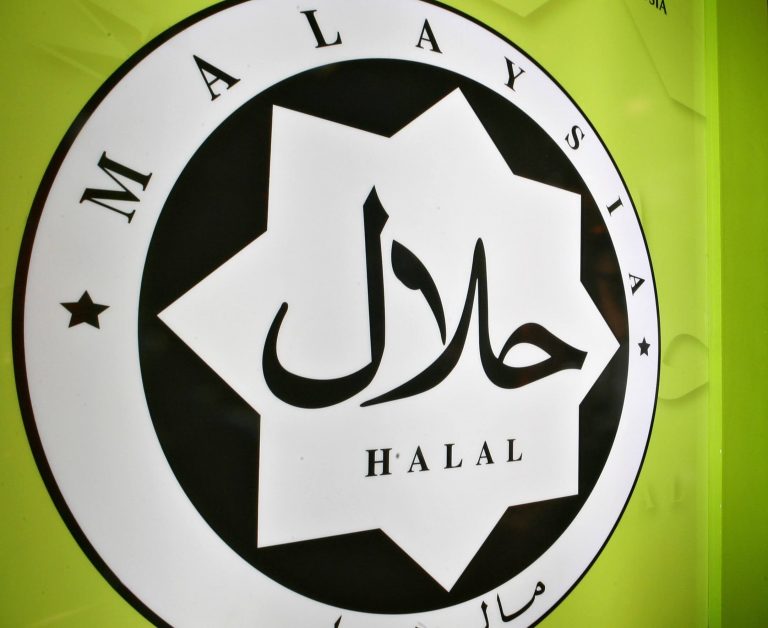Malaysia’s population of 16 million Muslims is driving demand for Halal products. Its proximity to Muslim markets such as Indonesia and the Middle East also offers strong export opportunities.
This insight describes how exporters can access the global Halal market by leveraging Malaysia as a launch pad, and key considerations when attaining Halal certification.
The meaning of Halal
Halal translates as “permissible” or lawful within traditional Islamic law observed by followers of Islam.
It has particular relevance within Islamic dietary laws. It is a key consideration impacting the production and processing of many food products, especially in Muslim countries. Many people equate Halal to mean the absence of pork and alcohol, but Halal has specific significance across the whole value chain.
Key aspects of food manufacturing – such as ingredient sourcing, slaughtering and food packaging – need to adhere to the Islamic faith if the end product is to be certified as Halal and marketable to the Islamic community.
Key considerations for Halal accreditation
Not all products have to be Halal-certified prior to importing to Malaysia. It is compulsory, however, for meat to be certified Halal prior to import.
Getting a certification for other food categories depends on market entry considerations, distribution channels and end-users.
This is most evident in the food services and hospitality sectors where many establishments are Halal certified and will require Halal-certified ingredients to retain this status. For example, Malaysian importers will only negotiate with Halal-certified manufacturers of dairy products due to specific considerations on the channels to market.
Halal certification is commonly viewed as the Muslim equivalent of HACCP or GMP certification. Brands that have gained Halal assurance will be rewarded with brand loyalty and greater market access to the Muslim market.
Trade implications for exporters
Firms considering Malaysia as a potential market are advised to refer to the Manual of Importing Country Requirements (MICOR) as prescribed by the Department of Agriculture, Water and the Environment (DAWE). MICOR sets out the requirements exporters must meet for products and commodities to be accepted for import into specific countries.
The Department of Islamic Development Malaysia (JAKIM) is the primary agency responsible for Islamic affairs, including Halal certification. JAKIM has to ascertain the Halal status of the product at every stage of manufacturing for Halal certification.
Foreign Halal Certification Bodies
JAKIM has appointed Foreign Halal Certification Bodies (FHCB) to facilitate the process for companies based outside of Malaysia. These authorised representatives will confirm the manufacturing process adheres to Halal standards. There are currently 7 certifying bodies in Australia for Halal certification export to Malaysia.
The Department of Agriculture, Water and Environment has a list of recognised Islamic bodies for Halal certification of red meat.
Exporters will also need to meet other requirements under Australian regulations prior to export.
The Malaysian Muslim consumer is youthful, curious and tech-savvy
There are an estimated 1.9 billion Muslims in the world today, making up roughly 26% of the global population. One in four people adheres to a Muslim lifestyle and its religious practices, including adherence to Halal standards.
Based on a State of the Global Islamic Economy Report 2021, spending by Muslim consumers is expected to reach US$2.4 trillion by 2024. Food spending alone is likely to account for over US$1 trillion of the total figure.
The Muslim population in Asia is under 30 years old on average. The high internet coverage in Malaysia means many consumers are strongly influenced by social media and use it as their primary source of information. Social media channels have a proven impact on sales of global brands, particularly by tapping into aspirational lifestyle marketing through Halal events and campaigns.
Malaysia at the forefront of the global Halal industry
With a population of 16 million Muslims, Malaysia has growing demand for authentic Halal products. Malaysia stands to benefit from both local demand and strong export opportunities by leveraging increasing purchasing power among consumers in other Muslim markets. These include the Middle East and neighbouring Indonesia, the world’s largest Muslim country.
Malaysia’s natural characteristics, together with proactive government policies, indicate growing opportunities in its Halal economy. As a member of the Organisation of Islamic Conference (OIC), Malaysia’s Halal certification is globally recognised by all Muslim nations, making it a perfect launch market for exporters.




















